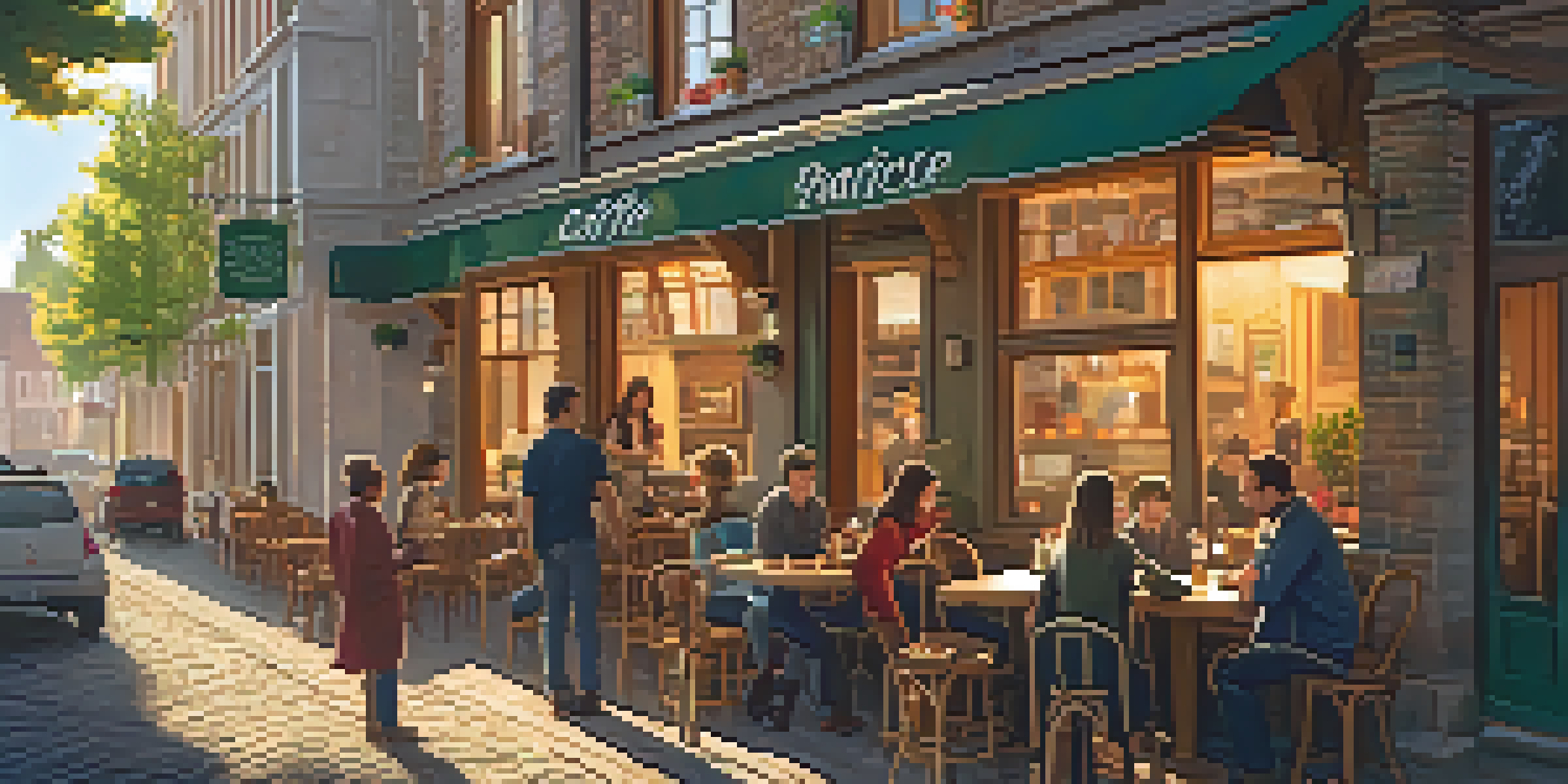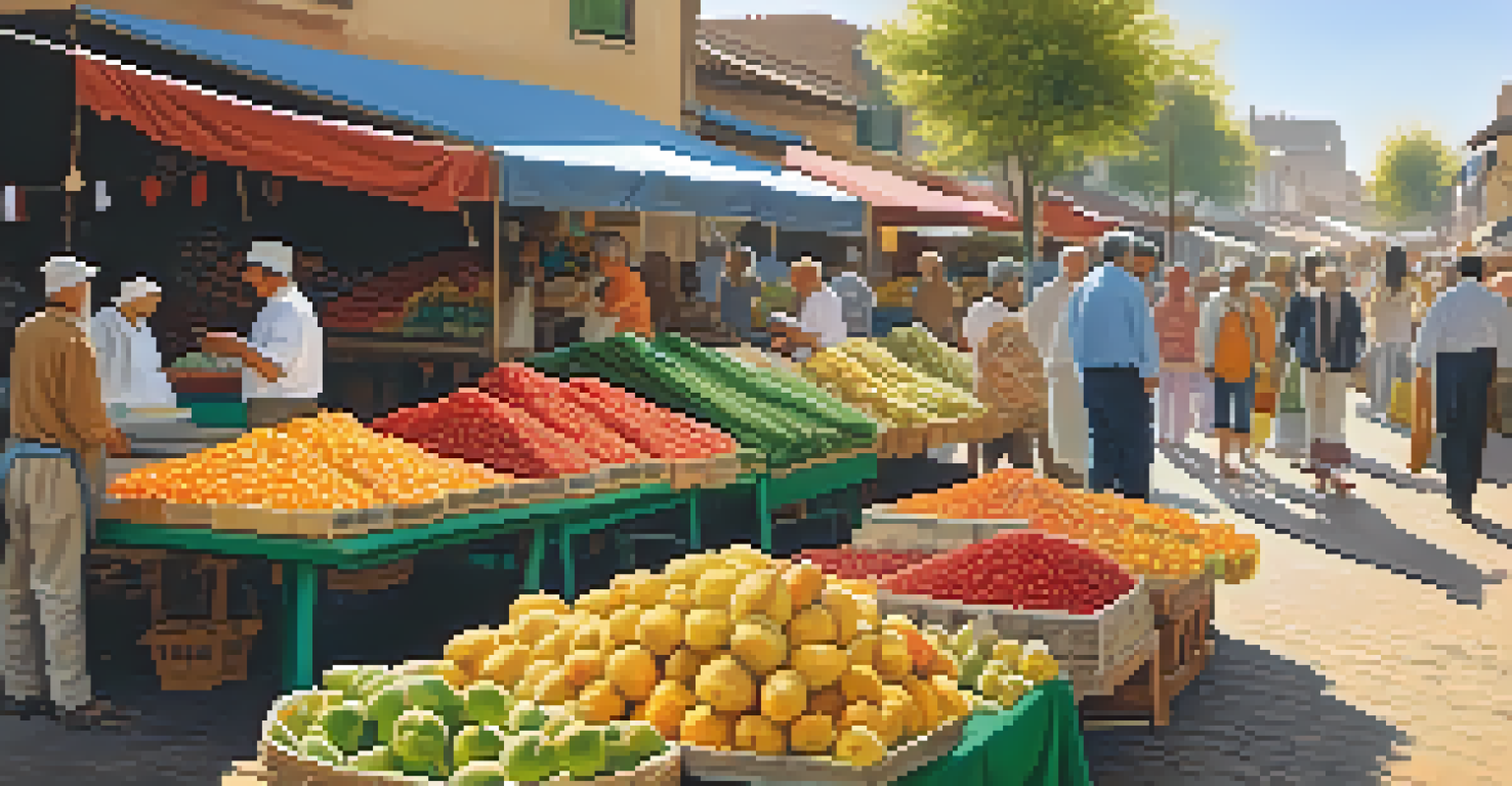Cultural Immersion: Experiencing Local Life in Hidden Towns

Understanding Cultural Immersion and Its Importance
Cultural immersion is more than just visiting a place; it's about engaging deeply with the local way of life. This means stepping away from tourist traps and embracing the traditions, languages, and daily routines of the community. By doing so, travelers can gain a richer understanding of the culture and its people.
Traveling – it leaves you speechless, then turns you into a storyteller.
Imagine sipping coffee at a family-owned café where locals gather, rather than at a chain restaurant. This simple choice can open doors to conversations and experiences that reveal the heart of the town. Through cultural immersion, you can learn about local customs, food, and art that might not be highlighted in guidebooks.
Ultimately, cultural immersion fosters connections between travelers and residents, creating lasting memories and friendships. It transforms a mere visit into a meaningful exchange, enriching both your life and the lives of those you meet along the way.
Choosing the Right Hidden Towns for Immersion
When looking for hidden towns to explore, consider factors like authenticity and community engagement. Some lesser-known destinations may be hidden gems, offering unique experiences away from the crowds. Researching online forums, social media groups, or travel blogs can help you uncover these special places.

For example, small towns like Kinsale in Ireland or Chefchaouen in Morocco provide a glimpse into local life without overwhelming tourist traffic. These towns often have vibrant traditions and welcoming locals eager to share their culture. Exploring such locations can lead to unexpected adventures and insights.
Cultural Immersion Enhances Travel
Engaging deeply with local traditions and daily life transforms a simple visit into a meaningful cultural exchange.
Remember, the goal is to connect with the local community. Look for towns that celebrate their heritage through festivals, local markets, and traditional crafts, ensuring that your experience is both immersive and enriching.
Engaging with Locals: The Heart of Cultural Immersion
Engaging with locals is essential for a truly immersive experience. Whether it’s striking up a conversation with a shopkeeper or joining a community event, these interactions can provide valuable insights into the culture. Locals often have stories and knowledge about their town that you won’t find in any guidebook.
The world is a book, and those who do not travel read only one page.
Take the time to learn a few phrases in the local language; it can break down barriers and foster goodwill. Even a simple 'hello' or 'thank you' can lead to warmer interactions. Furthermore, locals often appreciate when visitors show genuine interest in their culture, which can lead to more meaningful exchanges.
Participating in local activities, such as cooking classes or craft workshops, is another fantastic way to connect. These experiences allow you to learn hands-on skills while forming bonds with local artisans and chefs, making your journey unforgettable.
Food as a Gateway to Local Culture
Food is a universal language, and exploring local cuisine is one of the best ways to immerse yourself in a culture. Instead of dining at international chains, seek out family-run restaurants or street food vendors. These establishments often serve authentic dishes that reflect the region's heritage and traditions.
For instance, savoring homemade pasta in a quaint Italian town or enjoying fresh seafood at a coastal village can reveal a lot about the local lifestyle and ingredients. Food tells stories—of history, geography, and community—which makes it a vital aspect of cultural immersion.
Food Connects Us to Local Cultures
Exploring authentic local cuisine reveals the history and community behind the food, enriching the travel experience.
Don't hesitate to ask locals for recommendations on where to eat. They can guide you to hidden culinary treasures that you might otherwise miss. Sharing a meal with locals can also lead to fascinating conversations and deepen your understanding of their culture.
Participating in Local Traditions and Festivals
Local festivals and traditions offer a unique window into a community's culture. Attending these events allows you to witness customs, music, and art in their authentic forms. Whether it's a harvest festival, a religious celebration, or a seasonal market, these occasions bring communities together and invite visitors to join in the festivities.
For example, experiencing a vibrant carnival in Brazil or a serene lantern festival in Thailand can provide unforgettable memories. These events often feature local food, music, and performances, allowing you to immerse yourself fully in the culture. Participating in such traditions makes you feel like part of the community rather than just an onlooker.
Moreover, festivals often highlight the values and history of a place, giving you a deeper appreciation for its people. Engaging in these experiences can create connections that last long after the festival ends.
Exploring Nature: A Cultural Perspective
Nature plays a significant role in many cultures, influencing everything from food to folklore. Exploring the natural surroundings can enhance your understanding of local traditions and lifestyles. Whether it's hiking through a nearby forest, visiting a local farm, or enjoying a beach day, nature often serves as a backdrop for cultural experiences.
For instance, in many coastal towns, fishing is not just a job but a way of life, deeply intertwined with the community's identity. By witnessing these practices firsthand, you gain insights into how nature shapes local culture and traditions.
Participating in Festivals is Key
Attending local traditions and festivals allows travelers to experience authentic customs and connect with the community.
Additionally, many hidden towns offer eco-tourism opportunities that allow you to appreciate nature while supporting local economies. Engaging in activities like bird watching, hiking, or visiting botanical gardens can deepen your appreciation for the region and its culture.
Documenting Your Cultural Immersion Journey
As you immerse yourself in local cultures, consider documenting your experiences through writing, photography, or even sketching. This practice not only preserves your memories but also encourages reflection on what you've learned. Keeping a travel journal can help you process your thoughts and feelings about each encounter.
Sharing your journey on social media or a blog can inspire others to explore hidden towns and engage in cultural immersion. By telling your story, you can connect with like-minded travelers and ignite interest in lesser-known destinations.

Remember, the goal is not just to collect experiences, but to truly understand and appreciate the cultures you encounter. Reflecting on your journey allows you to carry these lessons with you long after your travels have ended.